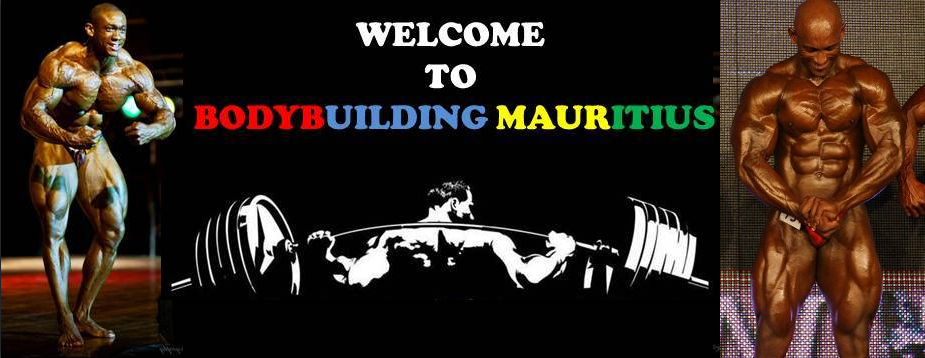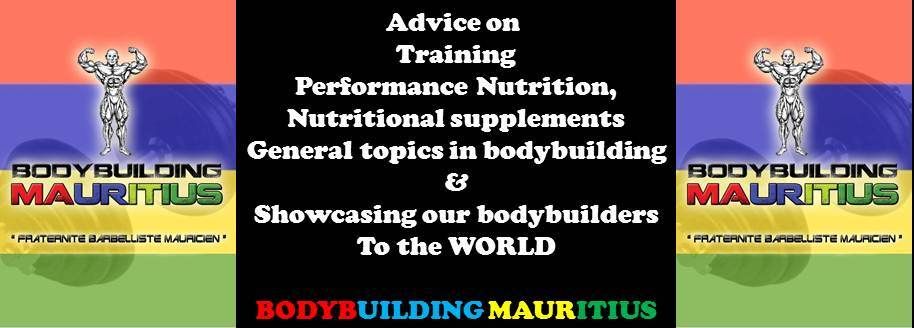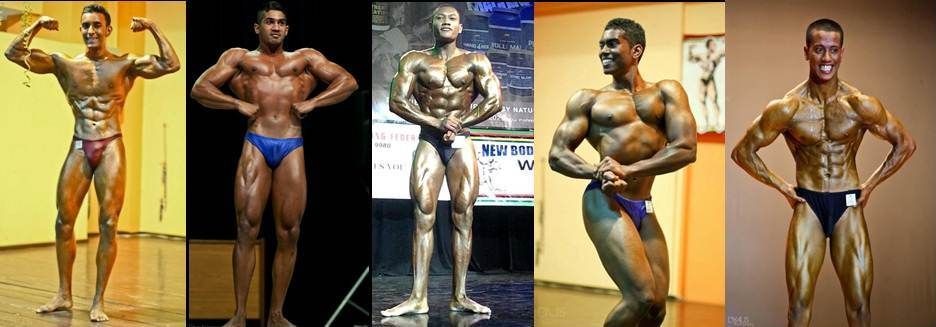The importance of Tracking in bodybuilding
By Damien botte noyan
 |
| Knowing your body: This may be one of the most the most important tools to bodybuilding success. Keeping track of what you do may help greatly towards this. |
Many beginners in the sport tend to follow the general guidelines
offered from the multitude sources of information out there, through coaches,
books, videos, online videos, websites, online forums, magazines and so on.
While all these general principles of bodybuilding are normally sound, the
results produce from their application will tend to vary from one person to the
next. For this reason, when someone decides to take his/her body transformation
to the next level, an important part of the process is to learn how one’s body
react to exercise and nutrition.
“As a bodybuilder, your success/failure is
determined by your individual effort, commitment, dedication, determination,
etc.…”
It is also important to note that because of the
individual nature of the sport, the results obtain through training and
nutrition will also be determined by the uniqueness of person. Each individual
has different genetics and will respond differently (to a certain extent) to
diverse training and nutritional regimen.
Why do I need to learn how my body reacts to
exercise and nutrition?
The answer to this question really depends on how
much results someone wants out of his/her bodybuilding journey. As mentioned
above, the general principles of bodybuilding will yield results. However, when
chasing a particular goal (e.g. lose x% of body fat), one will need to know how
his/her body reacts to the different training and diets they do, so that they
know they are on the right track. This knowledge helps analysing what has been
done, what results were obtained and also helps define what needs to be done
ahead to move closer to the goals. This is especially more important for those
bodybuilders who want to compete. This learning process is a not an easy one
but once mastered, one can have a good idea of what to do to get the results
he/she desires. One of the methods that can be used to learn how one’s body
react is through record keeping or journaling.
What do I need to keep record of?
Since bodybuilding involves training and nutrition,
the best thing to start tracking would be both training and nutrition.
Eventually, once someone is comfortable tracking both training and nutrition,
they can even take it to the next level, where they keep a complete journal of
their bodybuilding journey. This can include other stuff like how they were
feeling during their workout, outside the gym (in terms of mindset), if they
have been sick, how much sleep they are getting, etc. The journal is really a
collection of data on the individual. This data can become particularly useful
later on when being reviewed so that the person can learn what works and what
does not work. For example, one can track their mood on the day following a
cheat day, to see how it also affects their training on the next day.
 |
Tracking your workout:
There are various reasons to track one’s workout.
Below are a few of those reasons
Remember the appropriate weights to use when doing
an exercise
- When asking someone for advice, the person giving
out the advice will have more data from which to base their advice. Tracking the progress made in the gym
How this may help progress in training?
One of the basic principles used in bodybuilding is
that of progressive overload. This
principle refers to the process of gradually placing the body under increased
stress from exercising. The aim behind it is to continually make gains (in
terms of muscles or strength) from exercising, despite the attempts of the body
to adapt to the stresses it is put under. In the gym, one of the best ways to
apply progressive overload is to increase volume. Since volume is basically
defined as number of sets x number of
reps x weights, increasing volume is done by increasing one or more of
these three factors; 1) weight, 2) number of reps and 3) number of sets. By
tracking those three factors for each workout, one is able to make sure that
volume is increasing and by how much. This allows tracking plateaus and also
guiding someone when using cycles in their training (that is moving from a
heavy workout to a lighter one, while keeping volume high).
What do you want to track during a workout?
Basic tracking:
- Name of the exercise
- Number of sets
- Number of reps
- Weight used on each set
The table below shows basic tracking
Exercise Log
|
Date:
| |||
Exercise
|
Set 1
|
Set 2
|
Set 3
|
Set 4
|
Example: Flat bench press
|
15 x 50kg
|
15 x 50kg
|
15 x 50kg
|
12 x 60kg
|
Example: Dumbell flyes
|
12 x 15kg
|
12 x 15kg
|
10 x 18kg
| |
 |
| A sample email conversation that I had with my nutritional and training advisor Vic Goyaram, highlighting the importance of "tracking" |
Other things that can be tracked during a workout:
- - Warm up routine (if it is not an exercise being tracked)
- - Mood before workout
- - Mood after workout
- - Pre workout supplement used (if any)
- - Notes on individual exercises (e.g. press behind neck is causing shoulder pain)
- - Stretching done
- - Time spent working out
- - Water intake during workout
- - Other notes (e.g. what music helped to boost the workout, time spend checking out yoga class next door… lol)
THANKS FOR THE ARTICLE DAMIEN
Disclaimer: The Content on this site is intended to be used for educational and entertainment purposes only. It is not intended to be and should not be interpreted as medical advice or a diagnosis of any health or fitness problem, condition or disease; or a recommendation for a specific test, doctor, care provider, procedure, treatment plan, product, or course of action. BODYBUILDING MAURITIUS is not a medical or healthcare provider and your use of this site does not create a doctor / patient relationship. We disclaim all responsibility for the professional qualifications and licensing of, and services provided by, any physician or other health providers posting on or otherwise referred to on this Site and/or any Third Party Site. Never disregard the medical advice of your physician or health professional, or delay in seeking such advice, because of something you read on this Site. We offer this Site AS IS and without any warranties. Correspondence: vicgoyaram@gmail.com
______________________________________________________________________________


































